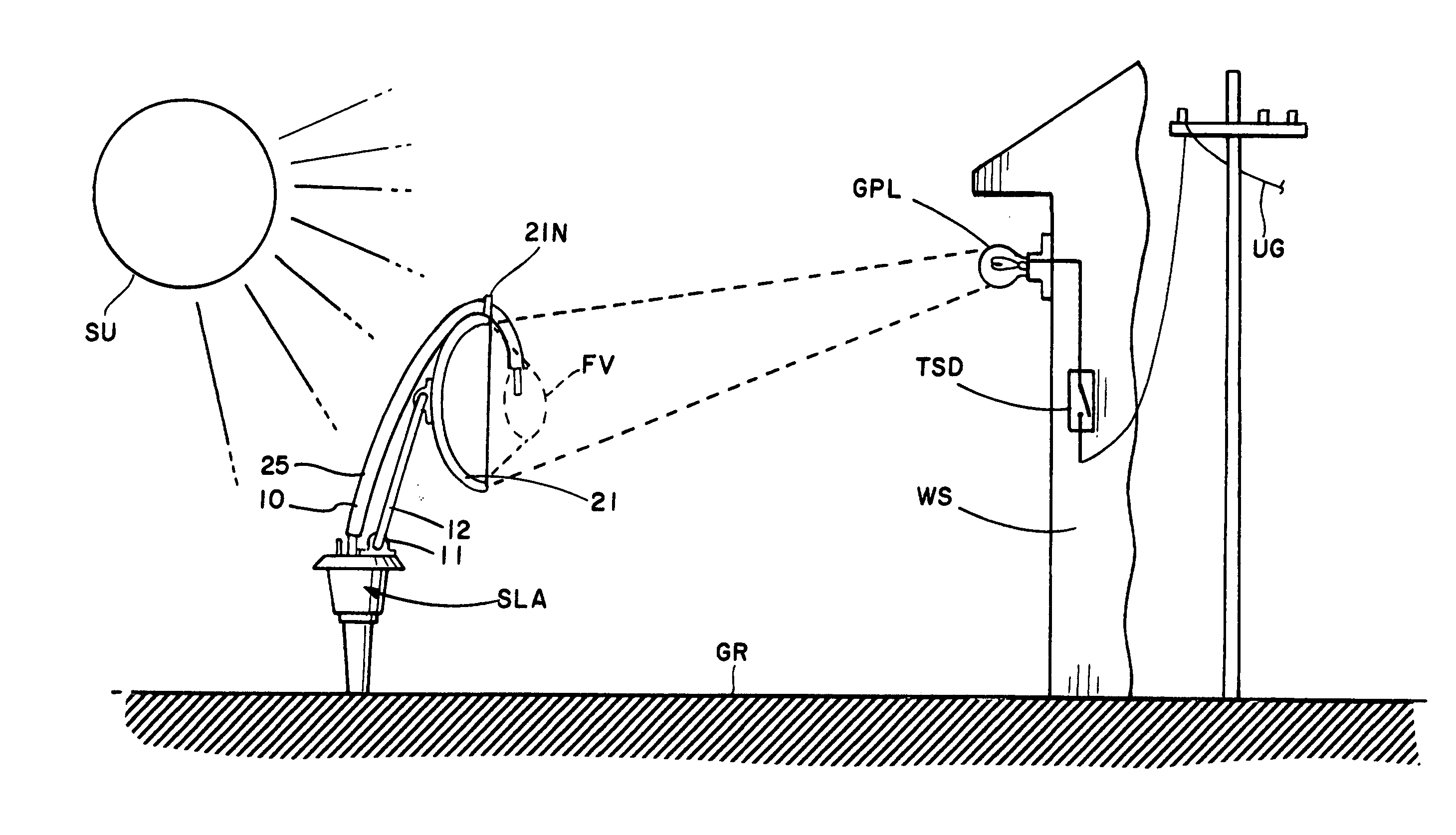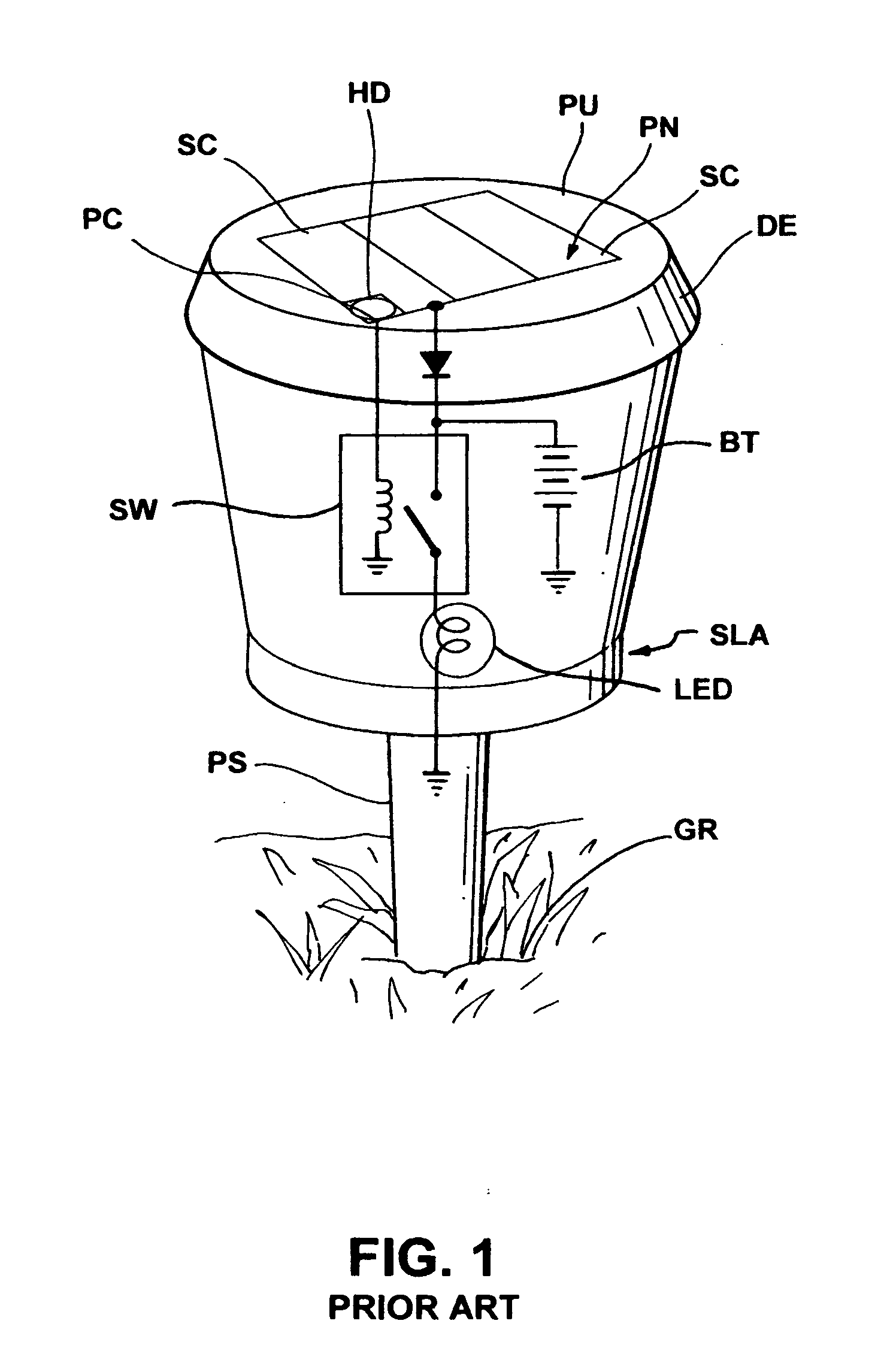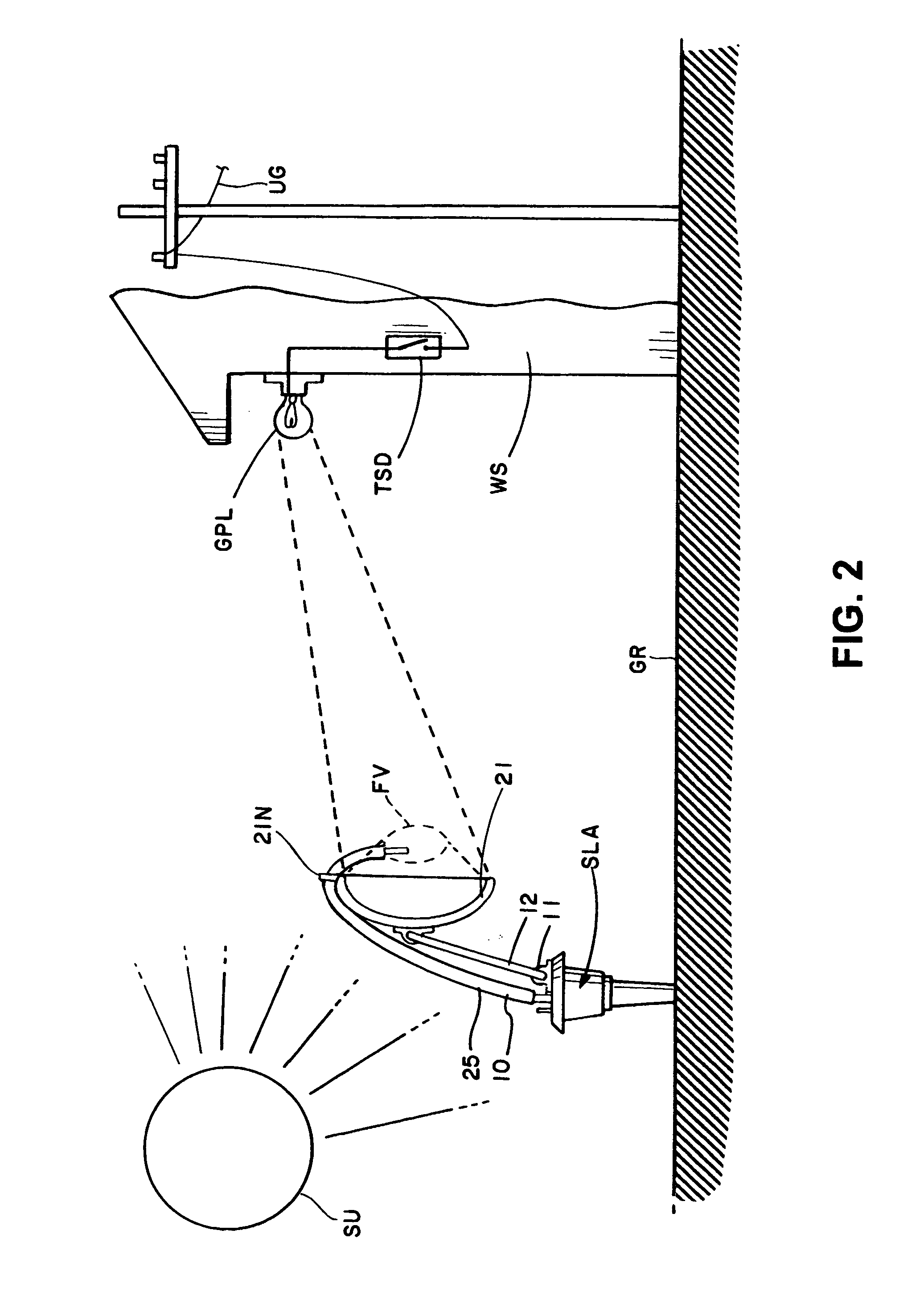Method and apparatus for coordinating solar lighting with grid powered lightin
- Summary
- Abstract
- Description
- Claims
- Application Information
AI Technical Summary
Benefits of technology
Problems solved by technology
Method used
Image
Examples
first embodiment
[0024]As shown in FIGS. 2 and 4 the inventive first embodiment of a light collecting device, generally designated by the numeral 10, is useful with, and is therefore generally associated with, a typical prior art solar light assembly SLA illustrated in FIG. 1 and characterized by an upper light collecting panel PU surrounded by a slanted peripheral drip edge DE and having a photovoltaic array PN mounted thereon on which one or more solar cells SC are positioned alongside a photocell PC connected to trigger a switch SW in circuit between a battery BT and a light emitting device LED. To replenish the power consumed in the course of lighting the solar cell(s) SC are also connected to the battery BT, with a blocking diode BD preventing reverse leakage. This whole solar light assembly is then mounted on a ground piercing spike PS that is pushed into the ground GR at selected locations.
[0025]A switch assembly SW in a circuit between the positive end of the battery BT and a low power light...
second embodiment
[0029]By particular reference to FIG. 4 the instant invention, generally designated by the numeral 110, includes a unitary reflector assembly 120 separately supported on its own mount comprising a length of deformable wire 112 that is inserted into the ground GR adjacent the solar light SLA. Like numbered parts functioning in a like manner to that previously described, an eccentric parabolic reflector 121 is affixed to the upper end of wire 112 and aligned to reflect the light emitted by the grid powered light GPL into a focal volume FV that is positioned to illuminate the upper panel PU including the photocell PH. To assure functional operation within the reflecting angles available reflector 121 is of a larger area than that of reflector 21 and its alignment is limited to areas where it does not interfere with the sunlight illumination of the solar light SLA. In this manner grid powered lights of various intensities may be easily accommodated in a passive arrangement that can be l...
PUM
 Login to View More
Login to View More Abstract
Description
Claims
Application Information
 Login to View More
Login to View More - R&D
- Intellectual Property
- Life Sciences
- Materials
- Tech Scout
- Unparalleled Data Quality
- Higher Quality Content
- 60% Fewer Hallucinations
Browse by: Latest US Patents, China's latest patents, Technical Efficacy Thesaurus, Application Domain, Technology Topic, Popular Technical Reports.
© 2025 PatSnap. All rights reserved.Legal|Privacy policy|Modern Slavery Act Transparency Statement|Sitemap|About US| Contact US: help@patsnap.com



